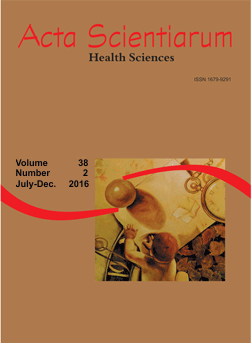<b>Determinants of Sexual and Reproductive Health among Brazilian youth (aged 18 to 29 years old)
Résumé
This study assessed the main determinants of sexual and reproductive health of Brazilian youth. It was approved by the Ethics Committee of the Medicine Faculty of the University of Brasília, and it received support from Paho and Brazilian Ministry of Health. 1.208 youngsters (18 to 29 years old) in 15 states and Federal District were interviewed at their residences, during the second semester of 2011. Margin of error, adjusted regional and nationally, was 2.8% (CI: 95%), regarding the assessed sample. A KAP scale (knowledge, attitudes, and practices) with 17 questions (-17 to +17 points) was generated. A questionnaire was pre-tested for consistency and validity analysis was performed. KAP scale was used as dependent variable in adjusted linear regression models. Mean KAP score was 5.65 points. Gaps in KAP were: 70% of the youth do not know when the fertility period of a woman is. 42% of youth do not recognize condoms as a method to prevent unwanted pregnancy and STDs. The main factors associated to explaining variances in KAP are gender, education, religion, access to health services, having had sexual intercourse in the last 12 months, and having friends as the main personal reference (p < 0.05). Youngsters with higher education, women, non-Protestant, who claim to know where to find health services have better KAP level of reproductive health. Studies are necessary to support public policies that increase the KAP levels in sexual and reproductive health of the most vulnerable groups, such as the segment comprising low education, men and Protestants.
Téléchargements
DECLARAÇÃO DE ORIGINALIDADE E DIREITOS AUTORAIS
Declaro que o presente artigo é original, não tendo sido submetido à publicação em qualquer outro periódico nacional ou internacional, quer seja em parte ou em sua totalidade.
Os direitos autorais pertencem exclusivamente aos autores. Os direitos de licenciamento utilizados pelo periódico é a licença Creative Commons Attribution 4.0 (CC BY 4.0): são permitidos o acompartilhamento (cópia e distribuição do material em qualqer meio ou formato) e adaptação (remix, transformação e criação de material a partir do conteúdo assim licenciado para quaisquer fins, inclusive comerciais.
Recomenda-se a leitura desse link para maiores informações sobre o tema: fornecimento de créditos e referências de forma correta, entre outros detalhes cruciais para uso adequado do material licenciado.























5.png)







